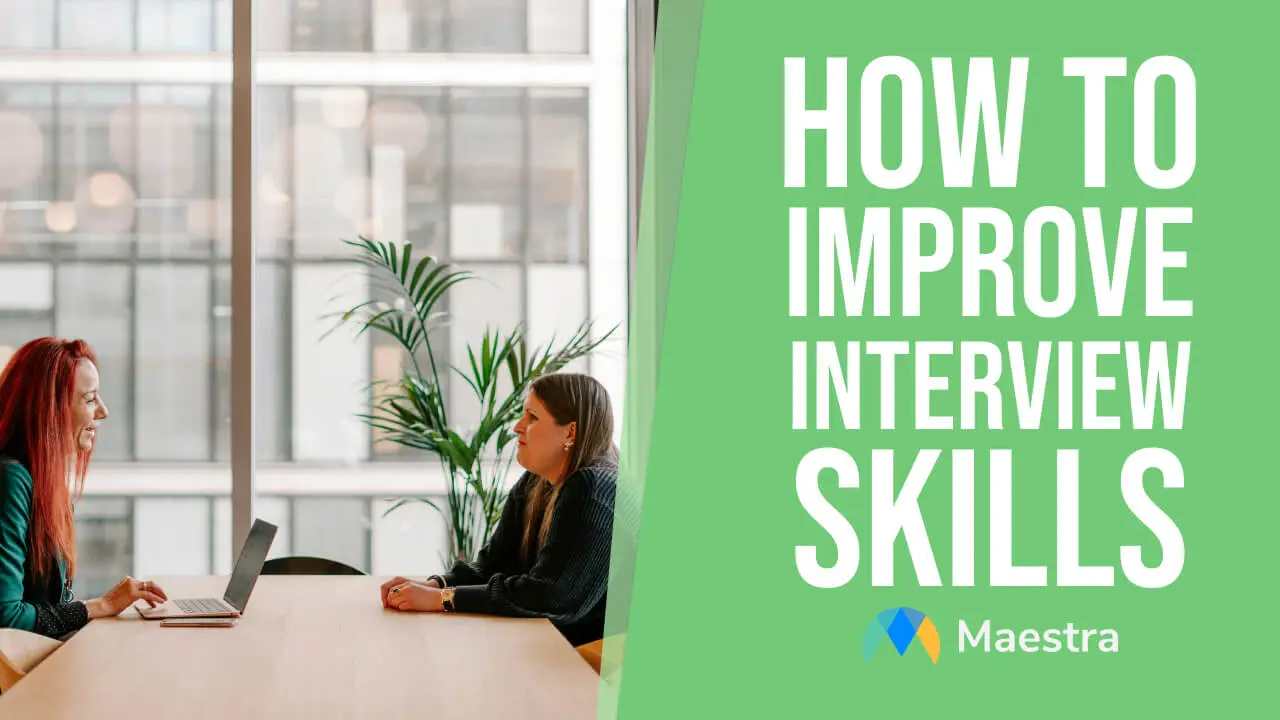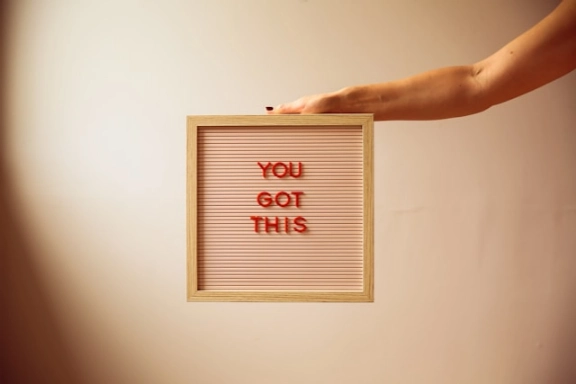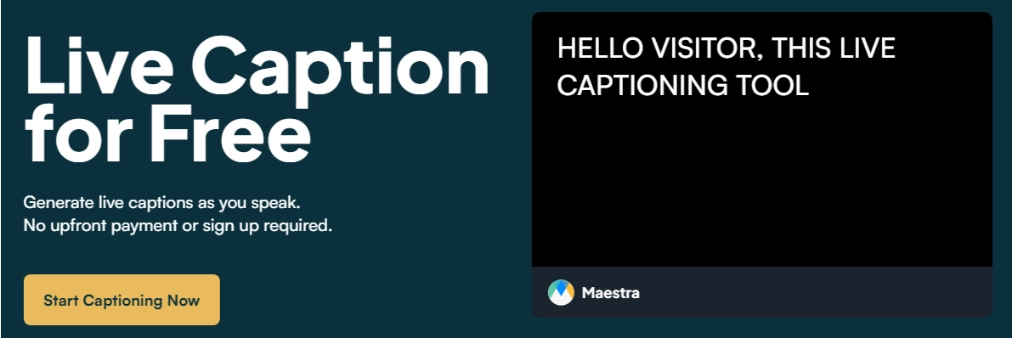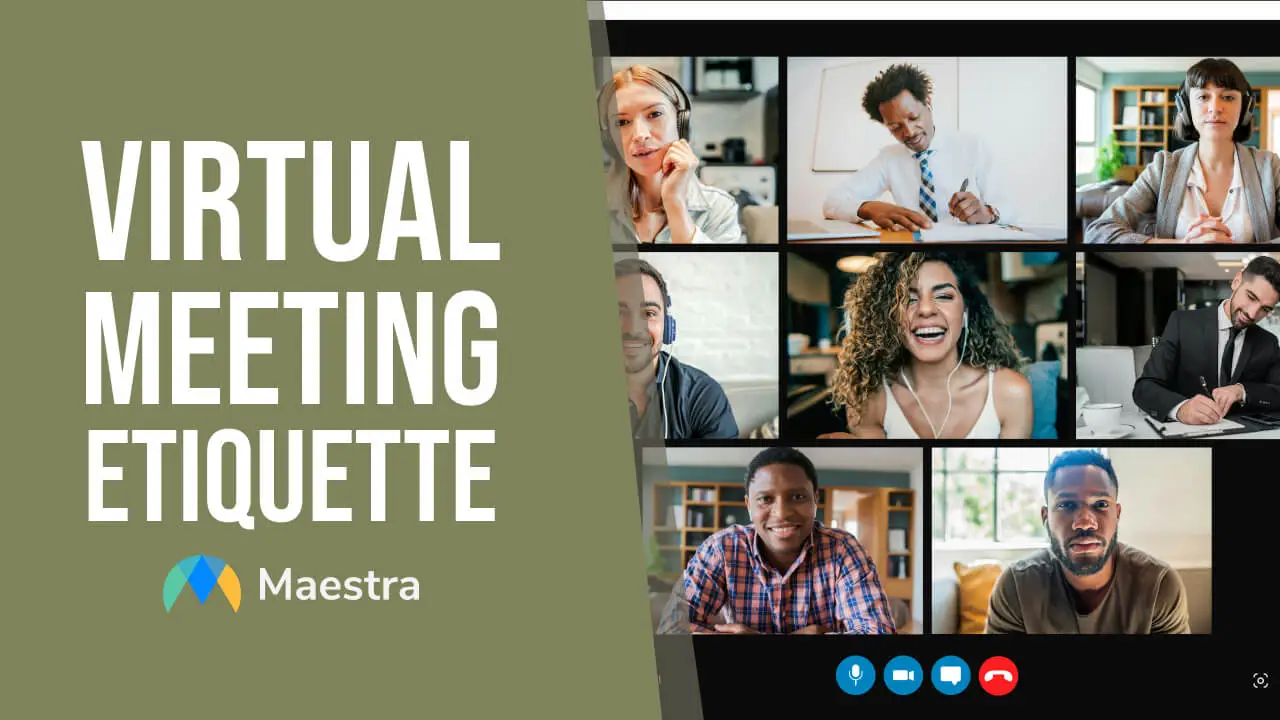How to Improve Interview Skills: 7 Essential Tips

Job interviews can be stressful because they are essential for building a rapport and getting the job you want. But, they are a part of every job-seeking process; therefore, if you are looking for a job, you should start working on your interview skills. In this blog post, we will review the skills you need to have a successful interview and provide you with tips on how to improve interview skills.
Let’s get started!
What are Interview Skills?
Interview skills are the techniques and abilities that you need in order to do well in an interview.
Whether it is online or in person, if you want to ace an interview, you need strong communication skills. Being confident, using your body language effectively, and listening attentively are key to effective communication.

While most interview skills are related to perfecting your communication – either verbal or non-verbal – you should also be good at researching, problem-solving, and planning.
We can say that the secret to success lies in the preparation process, so if you have an interview on the horizon or are applying for jobs, here is how to improve interview skills:
7 Tips on How to Improve Your Interview Skills
1. Do research.
Doing research is a great way to show your interest in the job. Learn about the company, role, and interviewer(s) before the interview so that you can ask good questions and be ready to answer theirs easily.

- Check the company’s website to learn about their mission, values, and products. Make sure their core values align with yours and take notes of the key points along with your questions.
- Study the job description to understand the key responsibilities and required skills. Then prepare examples of your previous experience that align with the requirements.
- Check the interviewers’ LinkedIn accounts if you know their name to understand their role within the company and ask them thoughtful questions.
2. Work on Your Communication Skills.
Excellent communication skills are key to having a successful interview. Having recordings of your mock interviews can help you identify development opportunities regarding verbal and non-verbal communication.

To perfect your communication skills, focus on introducing yourself, presenting your qualifications, and active listening.
Remember that interviewers will evaluate the way you say things as well as the things you say. While answering questions:
- be concise.
- adjust your tone and pace.
- make eye contact.
- maintain a good posture.
3. Familiarize Yourself with the STAR Method.
The STAR method is a technique used while answering behavioral questions. STAR is an acronym that stands for Situation, Task, Action, and Result.

As we’ve mentioned, how you answer the questions matters greatly during a job interview. You need to provide structured and concise answers to demonstrate your problem-solving and decision-making skills well.
When you are faced with a behavioral question:
- First, describe the situation so that the interviewer understands the context.
- Then explain the task, challenge, or goal you were responsible for.
- Next, describe the actions you took to complete the task or reach the goal.
- Lastly, share the outcomes of your efforts. Make sure to mention measurable results.
After learning about the role and its requirements, think of a few examples from your previous experiences that align with the job requirements. Take notes of these examples in order to provide a structured answer when you are asked a behavioral question.
4. Stay Updated.
The best way of showing that you are a great fit for the role you’ve applied for is to stay informed about industry trends.
- Read blogs or news related to your niche and follow current trends.
- Learn about any specific tools or software programs you need for the role.
- Keep yourself updated about the company too. Follow their social media accounts and blog pages to find out about the company’s recent developments and challenges.
5. Build Your Confidence.
If you are wondering how to have a successful interview, here is another key point: Having confidence is a significant skill for interviews. Technical expertise is not enough to leave a good impression on the interviewer.

During the interview, you will introduce yourself, mention your prior experiences, and explain why you are the best candidate for that role. You should be able to analyze your strengths and weaknesses for the role. All these require a great amount of confidence.
The previous 5 tips are crucial for building confidence. If you did your research, practiced with mock interviews, focused on your communication skills, and improved your technical skills, these should provide you with a confidence boost.
6. Practice with Mock Interviews.
Mock interviews are a great way to practice. They are like a simulation of a job interview, and they will help you get comfortable in answering questions and expressing yourself.
You can have mock interviews with anyone, but someone who knows how job interviews work and can evaluate others would be the most helpful.

Answer the most common questions. Practice how to talk about yourself and make sure you use the STAR method while answering behavioral questions.
To make the most of your mock interviews, you can record and transcribe them so that you can go over your responses and identify the areas of improvement.
Make the most of your mock interviews.
7. Follow the Rules of Etiquette
Knowing the etiquette and acting accordingly will help you leave a positive impression. Following the rules of conduct is the most important way of showing respect for the other person’s time and efforts.

Showing up fully prepared is a great way to start. So make sure you’ve mastered your interview skills by focusing on the tips we’ve provided, and in order to demonstrate professionalism:
- Be punctual.
- Dress appropriately.
- Follow up after the meeting.
How AI Can Prepare You for a Job Interview
AI tools can help you streamline your interview preparation process and improve your overall performance. So here is how to improve interview skills with AI:
When you have a transcript, you can search for specific parts of your practice sessions and find them easily; therefore, having a written record of your practice sessions is a great way to refine your delivery.

Maestra’s free live transcription tool can turn your mock interviews into text so that you can review them and find the areas you need to focus on. You will be able to see and analyze:
- your articulation,
- where you use filler words,
- the effectiveness of your examples,
- how you apply the STAR method.
Make sure to transcribe as many mock interviews as possible because when you transcribe multiple sessions, you will be able to track your progress by comparing the transcripts.
Turn you practice sessions into text in real time.
Frequently Asked Questions
How can AI help with interviews?
AI can help you prepare for your job interviews. You can use Maestra to transcribe your practice sessions to discover the areas you need to work on.
Can ChatGPT help with interviews?
Yes. ChatGPT can help with interviews. With a well-written prompt, you can ask ChatGPT for possible questions you might be asked during the interview. Make sure to mention the job, requirements, your background, and the company. Then you can provide your answers and ask ChatGPT for feedback to improve them.
What is the most popular interview technique?
The type of interview varies depending on the job; however, there are a few interview techniques on the rise:
- Behavioral interviews are quite popular these days since they demonstrate your problem-solving skills and allow the interviewer to see if you align with the company’s core values. This type of interview is suitable for all roles because the questions are adaptable to every situation and they enable the interviewer to make predictions about you and how you would act in the workplace.
- Case interviews are also very common, especially for developer, data analyst, content creator, and marketing manager roles.
- For jobs in IT and engineering technical interviews are also essential.
